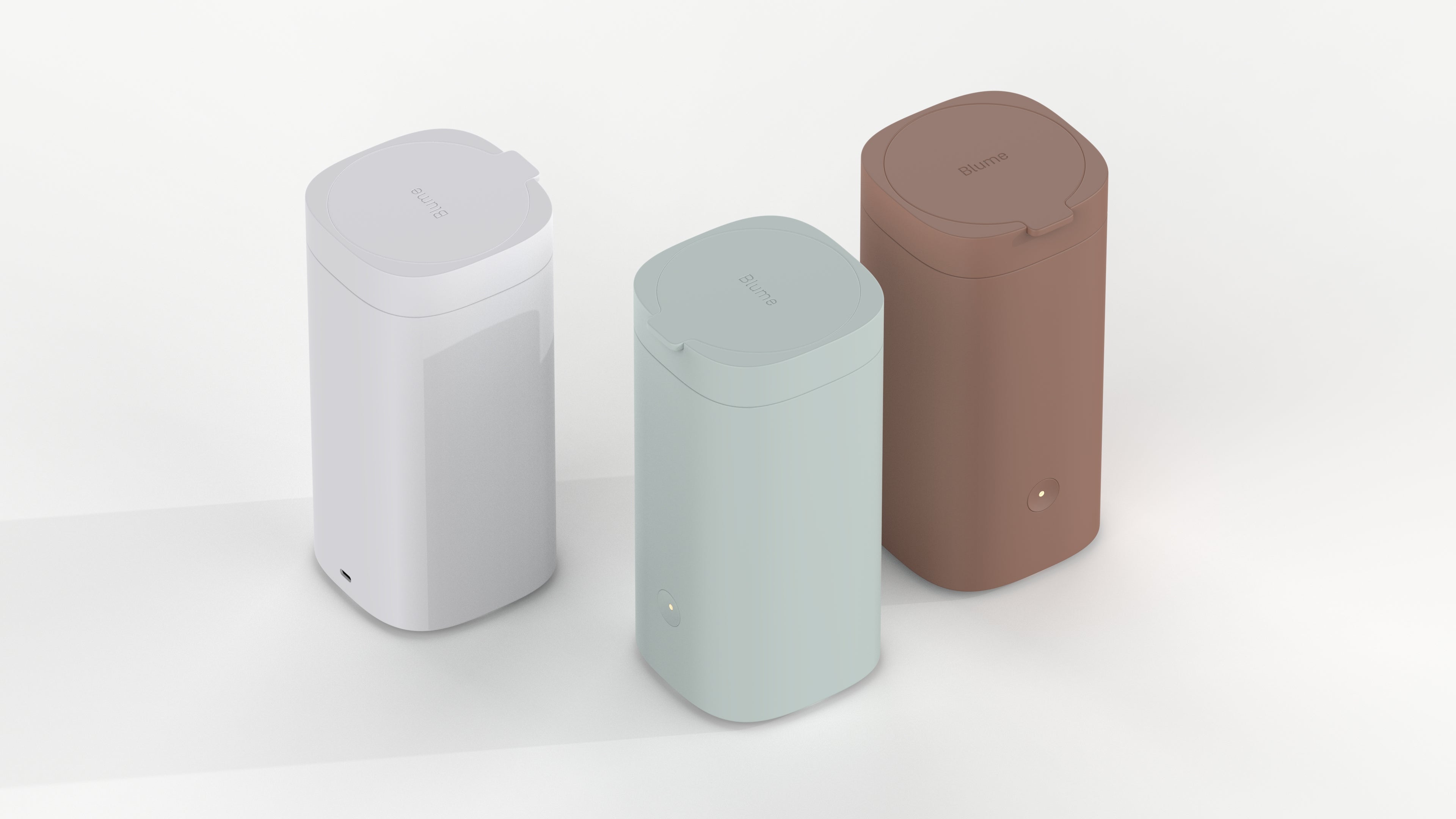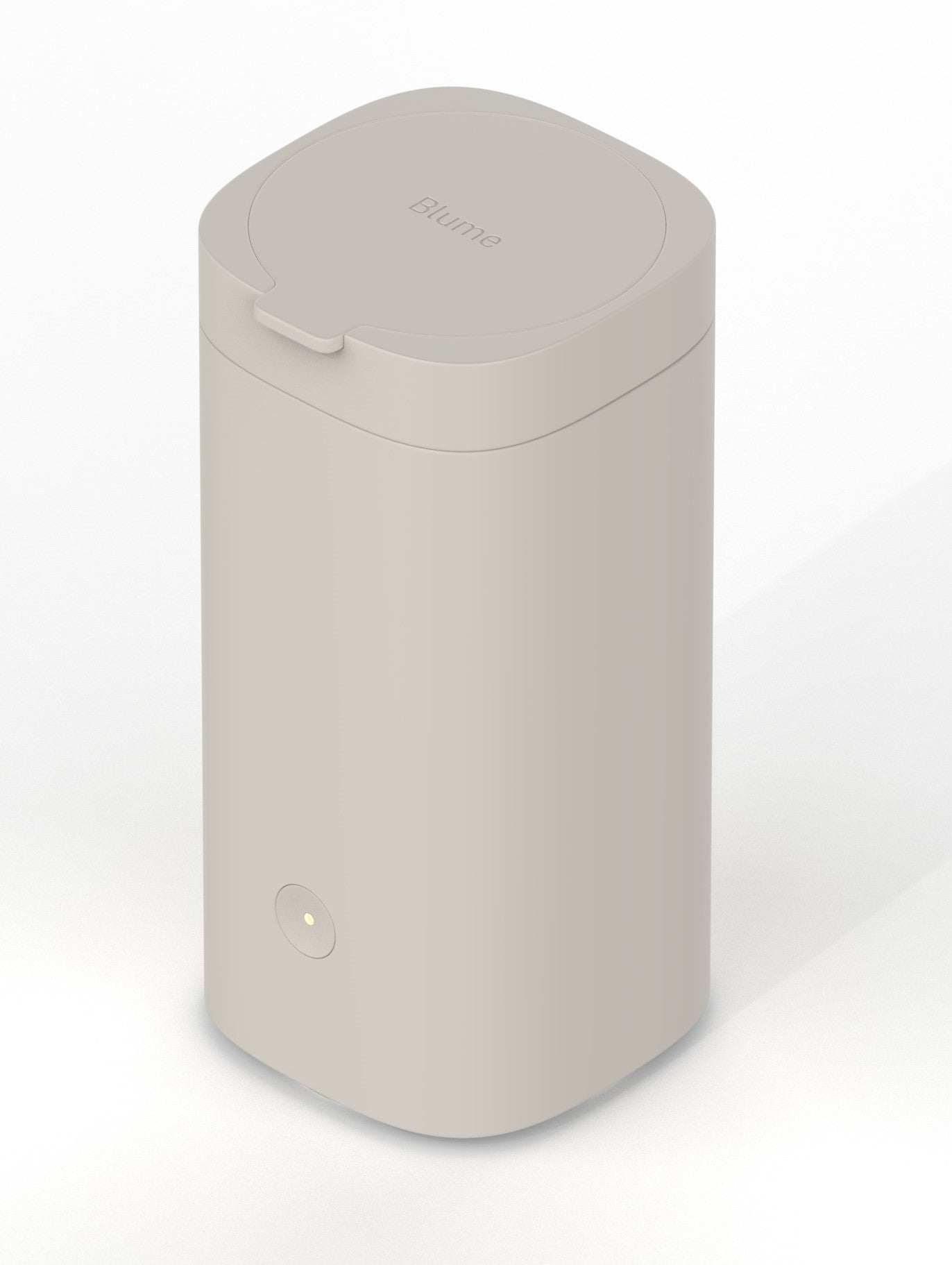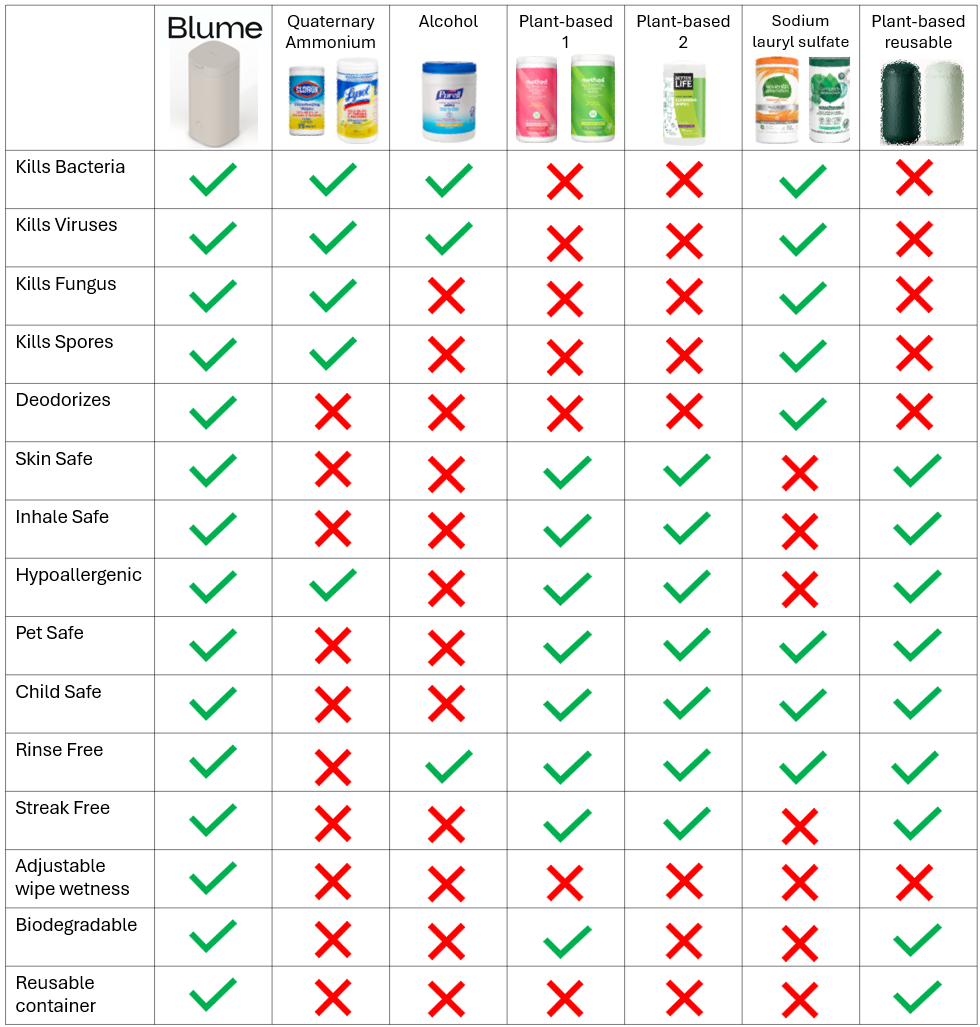
Smart wipes, smart container
Biodegradable disinfecting wipes more effective than leading brands. Safe for skin, children, pets and the environment. All made right in your smart device.

Cleaning wipes are broken
Common chemicals like QACs are linked to brain development issues, skin damage, and lung disease.
Plastics are used in 90% of wipes, creating billions of pounds of microplastics waste each year.
The Blume Difference
Our FDA- and EPA-approved hypochlorous cleaner is over 10x stronger than bleach and safe for skin, eyes, children, and pets according to over 30 studies.
Our wipes are 100% plastic-free and biodegradable.
How It Works
-

1. Customize
Add your preferred scented "activator" capsule, water, and dry biodegradable wipes to the dispenser.
-

2. Activate
A button press sets a customized wipe wetness level and makes disinfectant solution in 4 minutes.
-

3. Dispense
Our FDA-approved chemical solution kills 99.99% of bacteria and viruses and is skin safe, eye safe, and food safe. Blume wipes are streak-free and cut through grease and odors, making them great for wood, glass, granite, stainless steel, pets, shoes, and more.
-

4. Repeat
Smart sensing is used to track and indicate when a wipe refill is needed. Every refill component is biodegradable, down to our wipes, capsules, and packaging.
What our users say
Order Now-

-
Myra, 29
"The container looks beautiful on my countertop! I even feel comfortable using it on things like my yoga mat, where Clorox wipes would dry out my skin."
-
Adam, 27
"The wipes are soft but very strong and work well for sticky areas. I loved the ability to adjust the wetness of the wipes with a button click as someone who has always felt that typical wipes dry too quickly! The wipe refill indicator [light] is super useful as well."
Safe & effective

FAQ
When will I get my Blume dispenser?
Blume containers are planned to ship in late 2025. If Blume containers ship later than 2025, we'll add a free three wipe refills on us.
Is Blume FDA-approved?
The disinfectant used in our wipes, hypochlorous acid, is FDA- and EPA-approved for a variety of diseases, including COVID-19.
What is hypochlorous acid?
Hypochlorous acid, or HOCl, is a natural disinfectant produced by our bodies to fight disease. It is FDA- and EPA-approved, and is at least 10x more effective than bleach at inactivating viruses and bacteria. It was FDA approved for cleaning food-contact surfaces in 2017.
HOCl was also shown to promote wound healing and reduce wound scarring in a number of studies.
Why a refillable smart container?
Besides the benefits of reduced packaging and shipping waste, hypochlorous acid has a limited shelf-life. Our smart container uses sensors and a patented hypochlorous acid generation system to re-make cleaning solution when it loses its effectiveness - all without you lifting a finger.
Are Blume wipes safe for my pets and children?
Hypochlorous acid is skin safe, eye safe, and wound safe.
Who is the team behind Blume?
The Blume team consists of a talented team of engineers, designers, and marketers from organizations like Intuitive Surgical, Fellow, Hims, Stanford University, Carnegie Mellon University, and Johns Hopkins University. The team has won over 10 design awards collectively, and their products have served over 10M customers.
The founders met while designing the market-leading surgical robot at Intuitive, where harmful disinfecting products were commonly used to clean down equipment in hospitals.
After reading a study about nurses developing higher rates of lung disease due to disinfectant exposure, they decided it was time to make a change in this product category.
What are these quaternary ammonium compounds used in wipes today?
Quaternary ammonium compounds - quats or QACs for short - are the most common disinfectants used in leading wipe brands today. Some common quats are listed here.
The US National Toxicology Program, NIOSH, and OSHA have each determined
that the acceptable Occupational Exposure Level, or OEL, for quaternary ammonium compounds and for bleach is zero.
A common quat, benzalkonium chloride, was evaluated by Choi et al and they found
significant lung damage at extremely low levels in a mammal exposure model.
Nurses showed a 25-38% higher rate of COPD when exposed to quats. Mice show embryotic development issues when exposed to quats.
An an extensive overview of the health risks of quats can be found here.
What is wrong with alcohol-based wipes?
Alcohol evaporates quickly when applied to surfaces, which typically require 10-60 seconds of wet time to ensure germ reduction. A systematic review showed that 70% alcohol inadequately disinfected surfaces that had not been cleaned first for 46.9% of products.
Can I use Blume wipes on my skin?
Studies have shown that hypochlorous acid promotes wound healing and does not cause skin irritation.
What separates Blume from other wipe dispensers?
Other wipe dispensers do not offer wipes that are more effective than Clorox while also safe for people, pets, and the environment.
Our patented technology allows the user to adjust the wetness of your wipes on the fly - wet to completely dry - and tracks when it is time to reload your dispenser. Finally, every refill component we use is biodegradable.
Where can I use my Blume wipes?
Blume wipes can be used on most non-porous surfaces including glass, granite, stainless steel, and wood. Blume wipes are excellent for degreasing, polishing, and leave no residue behind. They are deodorizing, making them great for pets, shoes, doorknobs, toilets, and many other surfaces.
Test on an inconspicuous location of fabrics to avoid discoloration.







